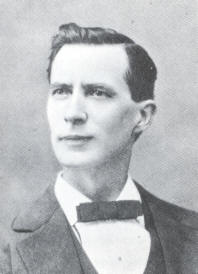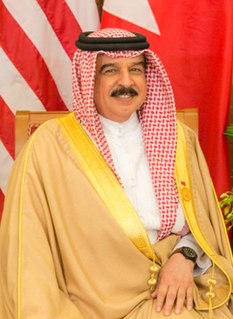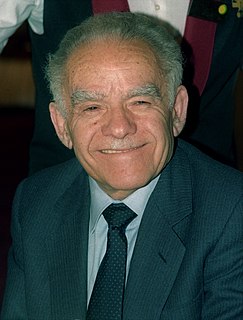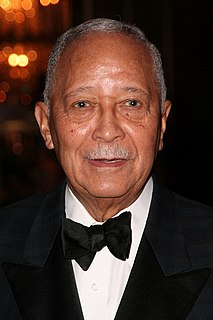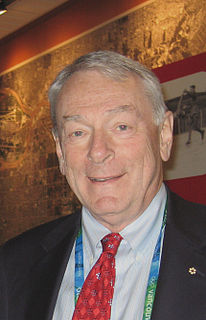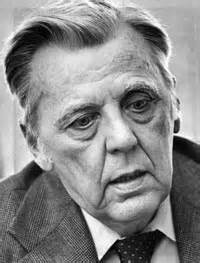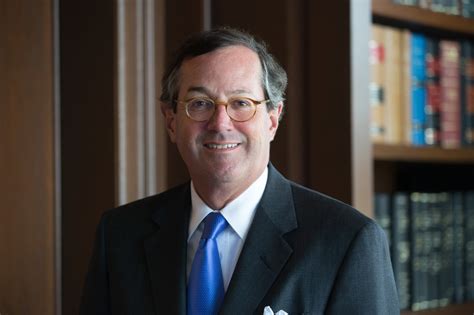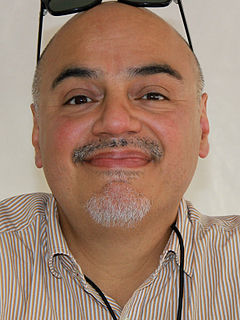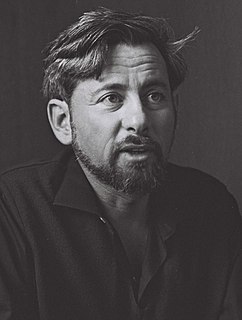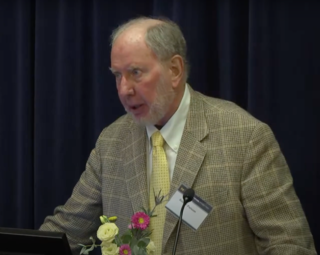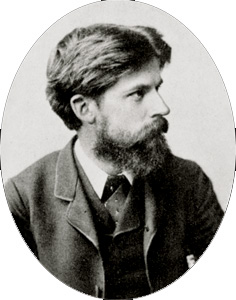Top 1200 Capital Gains Quotes & Sayings - Page 5
Explore popular Capital Gains quotes.
Last updated on December 22, 2024.
It is time that capital and labor realized that their interests are really comutual, as interdependent as the brain and the body; time they ceased their fratricidal strife and, uniting their mighty forces under the flag of Progress, completed the conquest of the world and doomed Poverty, Ignorance and Vice... Unless labor is employed, capital cannot increase - it cannot concentrate. Unless property rights are held inviolable and capital thereby encouraged to high enterprise, labor is left without a lever with which to lift itself to perfect life and must sink back to barbarism.
Capital requires protection, as do the institutions through which it operates. As capital expands its operations, the state that is associated with its protection must develop its capacity for autocratic control. Thus, the "Free World" increasingly resembles a dreary string of heartless police states.
State funds, private equity, venture capital, and institutional lending all have their role in the lifecycle of a high tech startup, but angel capital is crucial for first-time entrepreneurs. Angel investors provide more than just cash; they bring years of expertise as both founders of businesses and as seasoned investors.
I have been brought up in a culture where capital punishment is indeed anathema. I have always thought of myself as a principled opponent to capital punishment. However, when thinking about how the topic is handled in other cultures, in particular the American, Russian and Chinese ones, I have realised that my own tack on the issue was utterly superficial.
As you probably know, some American politicians and American journalists refer to Washington, DC as the "capital of the free world." But it seems to me that Brussels, which boasts 1,000 years of history and which serves as the capital of Belgium, the home of the European Union, and the headquarters for NATO, this city has its own legitimate claim to that title.
Attempting to build a language wall around Quebec is precisely the wrong policy to follow. It will keep out of Quebec exactly what we need to attract by way of talent and capital; it will drive our best - francophones as well as allophones and anglophones, with their talents and capital - to leave Quebec.
Capital movements are no longer necessarily related to the production of goods and services. Through the financial markets of the world, capital movements today are overwhelmingly concerned with the capture of and trade in property rights, the ownership of assets that magnify a corporation's wealth, power, and control. It is what John Maynard Keynes described as "a casino world"-wealth without worth.
Muslims who convert to Christianity are not protected. That carries capital punishment. He would be given the opportunity to repent, and the Sharia court would need to determine if he was really a Muslim in the first place, did he know what he was doing, and once all of that has been determined, there is capital punishment for that in Islam.
I think there's an awful lot of twaddle and bullshit on EVA. The whole game is to turn retained earnings into more earnings. EVA has ideas about cost of capital that make no sense. Of course, if a company generates high returns on capital and can maintain this over time, it will do well. But the mental system as a whole does not work.
There is something more important than any ultimate weapon. That is the ultimate position-the position of total control over Earth that lies somewhere out in space. That is . . . the distant future, though not so distant as we may have thought. Whoever gains that ultimate position gains control, total control, over the Earth, for the purposes of tyranny or for the service of freedom
Those subject to capital punishment are real human beings, with their own backgrounds and narratives. By contrast, those whose lives are or might be saved by virtue of capital punishment are mere 'statistical people.' They are both nameless and faceless, and their deaths are far less likely to be considered in moral deliberations.
What we prefer to do is operate our investment bank in a way that is like what investment banks used to be, which is a middle man - someone who is here to match people who need capital with people who have capital - and not position ourselves at the center of that by taking big positions on a trading stance.
My tax plan will cut taxes for 95 percent of workers, because we need to put money back into the pockets of struggling middle-class families and close the egregious tax loopholes that have exploded over the last eight years. My plan eliminates capital gains taxes entirely for the small businesses and start-ups that are the backbone of our economy, as opposed to John McCain's plan, which would tax these businesses. John McCain is running to serve out a third Bush term. But the truth is, when it comes to taxes, that's not being fair to George Bush.
If the investors themselves are not sophisticated, if they themselves are not putting a lot of their own money to work, if they themselves don't understand the continuum of capital and how different parts of the capital structures react differently, then they're basically worthless. They're not going to give great advice to these entrepreneurs who then need it. So that is unfortunately the cycle we're in and we have to break the cycle.
I don't want to overvalue Donald Trump as some historical rupture, and to admit that I do think Trump is an indication of a fairly profound change. But the change started a while ago, and it has taken a while to appear. Global capital, particularly western capital, has been in decline since the late 60s and early 70s. The softness appeared in the 60s, the profit rate fell off the table in 1972 - 73, and there have been very uneven recoveries. This has been an ongoing weakening of the productive economy of accumulation at a global scale, of capital's capacity to expand.
There's a lot of really wonderful things about the United States of America, especially its ethnic diversity and its mostly successful struggle to create a democracy out of many different cultures. So, we have a lot of capital as a people, we have a lot of cultural capital to keep our democracy going.
It is as to whether its services or uses are to be exchanged or not which makes a tool an article of capital or merely an article of wealth. Thus, the lathe of a manufacturer used in making things which are to be exchanged is capital, while the lathe kept by a gentleman for his own amusement is not.
What being among the 'right people' entails is the possession of human capital, rather than organizational capital: an individual reputation, portable skills, and network connections. Career responsibility is squarely in the hands of individuals, a function of their knowledge and networks. Transferable knowledge is more important to a career than firm-specific knowledge.
One of the principal impediments to job creation is uncertainty on the part of American companies, large and small. We've all watched as companies have sat on a lot of capital. They're uncertain about what tax policy is going to be. They're clearly uncertain about how health care costs. They're uncertain about all the regulations on capital markets.
Population regulates itself by the funds which are to employ it, and therefore always increases or diminishes with the increase or the diminution of capital. Every reduction of capital is therefore necessarily followed by a less effective demand for corn, by a fall in price, and by a diminished cultivation.
The solution is this: There will be a state of Palestine in all of the Occupied Territories of the West Bank and the Gaza Strip. The Green Line, the border that existed before 1967, will come into being again. Jerusalem will be the shared capital - East Jerusalem will be the capital of Palestine, West Jerusalem will be the capital of Israel. All settlements must be evacuated. The security must be arranged for both people, and there must be a moral solution and a practical solution.
As the run-by-capital society of producers turned since into the run-by-capital society of consumers, I would say that the main, indeed "meta", function of the governments has become now to assure that it is the meetings between commodities and the consumers, and credit issuers and the borrowers, that regularly take place.
The ability of so many people to live comfortably with the idea of capital punishment is perhaps a clue to how so many Europeans were able to live with the idea of the Holocaust: Once you accept the notion that the state has the right to kill someone and the right to define what is a capital crime, aren't you halfway there?
It's a tract against capital punishment in the genre of Swift's Modest Proposal. I was simply following a formula to its logical conclusion. Some people appear to have understood it. The publication of Naked Lunch in England practically coincided with their abolition of capital punishment. The book obviously had a certain effect.
In general President Obama's policies have been very, very skewed and very, very extreme. Like on healthcare for example, I don't think that trying to ram healthcare through was a smart idea politically, because he wasted a lot of capital and now he doesn't have any of that same capital with even his own party that he used to have.
I affirm that gain is precisely that which comes oftener to the bad man than to the good; for illegitimate gains never come to the good at all, because they reject them. And lawful gains rarely come to the good, because, since much anxious care is needful thereto, and the anxious care of the good man is directed to weightier matters, rarely does the good man give sufficient attention thereto. Wherefore it is clear that in every way the advent of these riches is iniquitous.

